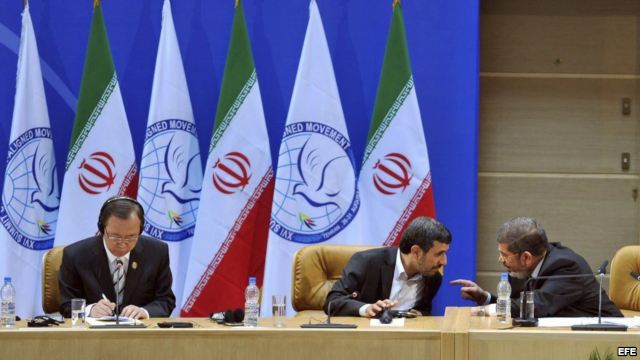
In August the sixteenth summit of the Non-Aligned Movement (NAM) came to an end in Teheran, the capital city of Iran — the country which now assumes the presidency of the organization. The Syrian crisis and the Iranian nuclear program dominated the meeting’s agenda. The movement has lost some of its purpose since the end of the Cold War. During the last decade of the 20th century, however, it seems that the flexibility of its members political views has actually allowed it to retain some relevance in the international arena. It has never been clear that leaders of some of the founding member countries understood what non-alignment meant.
Cuba participated in the first summit conference in Belgrade from September 1 to September 6, 1961, along with 27 other states, as a full member. On May 30 of the following year Comandante Fidel Castro approved Operation Anadir, which allowed the former Soviet Union to install nuclear bases in Cuba with missiles directed towards the United States — an action that brought the world to the brink of annihilation. It is reported that, on the night of October 26, 1962, in the midst of the Caribbean Missile Crisis, the Cuban leader sent a letter to then-Premier Nikita Krushchev suggesting that he launch a first-strike nuclear attack on the United States. The letter, which has never been fully released, has been the subject of various interpretations. Underlying it, however, is an awful intent — to launch a third and final world war.
After the crisis Cuba continued its membership in the Movement of Non-Aligned Countries. It later allowed the installation of a Soviet signals intelligence station at Lourdes as well as a contingent of military personnel. It seems that among the most important concerns of NAM’s founding members is support for so-called national independence movements. The Cuban dictatorship excelled in this regard at the sacrifice of their people, to get thanks for the real and material solidarity offered, and to turn a blind eye to their past history of military commitments with the ex-Soviets. It’s the politics of ambiguity and the half-truths of regimes of this nature to always justify the means for the ultimate end: to remain in power at all costs.
Translated by: @Hachhe
September 11 2012
